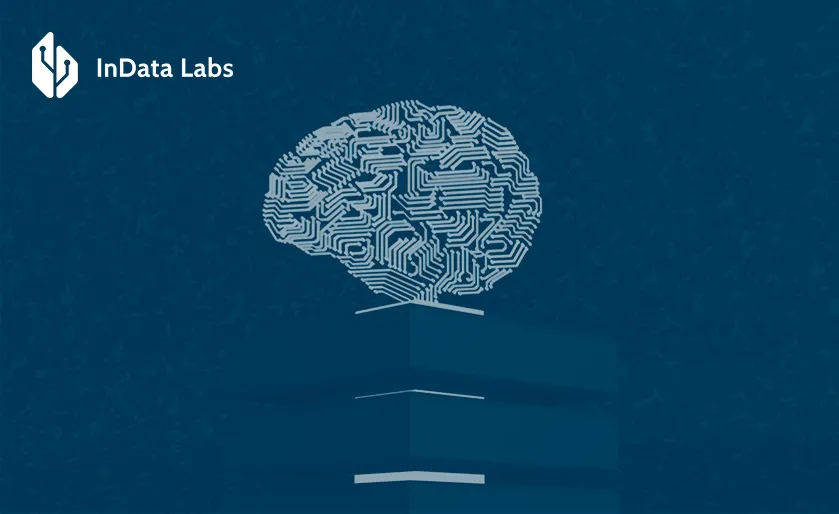In an era where technological currents reshape industries at an unprecedented pace, the discipline of product management stands at a pivotal juncture. The traditional methodologies, while foundational, are now being profoundly augmented by the burgeoning capabilities of artificial intelligence.
This convergence marks the dawn of AI product management, a paradigm shift that promises to redefine how products are conceived, developed, and brought to market. It’s no longer a question of if AI will influence product strategy, but how deeply it will integrate into every facet of the product lifecycle.
This article embarks on a comprehensive exploration of this transformative domain. We will delve into understanding the evolving role of the product manager for AI, dissecting the intricate intersection of AI and product management, and illuminating the tangible benefits that AI for product management brings to the table.
Understanding AI in product management

AI doesn’t replace human judgment but provides intelligent assistance, processing vast data and identifying patterns beyond human capacity.
Unlike traditional methods relying on historical data, AI offers a dynamic, predictive layer, enabling real-time responsiveness to market shifts, personalized user experiences, and proactive problem-solving. This fundamentally changes how product managers interact with data, shifting from retrospective analysis to forward-looking foresight.
Key to this evolution are concepts like machine learning, where systems learn from data without explicit programming, and the broader data science process, covering data collection, cleaning, model deployment, and monitoring.
AI also empowers cross-functional teams (from engineering to marketing) to collaborate more effectively by collectively managing AI-driven insights. This reduces time spent on data aggregation, allowing more focus on strategic thinking and creative problem-solving.
The transformative power of AI for product managers
The full potential of AI-powered product management is realized as AI permeates every stage of the product lifecycle, changing how product managers operate and the insights they gain.
AI isn’t just a tool, it’s an accelerant, enhancing human capabilities for a more data-informed, agile, and user-centric approach. From ideation to optimization, AI offers a distinct advantage, allowing product teams to create innovative AI solutions with unprecedented efficiency and precision.

Source: Unsplash
Market research & user insights
AI revolutionizes market research and user understanding. AI-driven platforms quickly process vast unstructured data (social media, customer support, competitor analysis, reports). This helps product managers identify trends, unmet needs, and sentiment at scale. Predictive analytics forecasts market shifts and consumer preferences, enabling proactive problem-solving. This deep, real-time insight provides a significant competitive edge.
Idea generation & validation
Ideation is supercharged by generative AI. Tools powered by generative AI for product managers assist in brainstorming concepts, generating feature ideas, and crafting preliminary user personas based on data. This extends to generative AI product management workflows, rapidly producing initial mock-ups or content drafts.

Source: Unsplash
Whether gen AI in product management helps articulate value or gen AI product management assists with early design, iteration speed increases dramatically. generative AI in product management allows teams to explore more possibilities and validate hypotheses faster.
Feature prioritization & roadmap development
This optimizes the AI product manager roadmap, aligning development with strategic goals and user needs. Simulating feature impact before committing resources empowers confident decisions, moving from intuition to data-backed conviction.
Product development & iteration
During development, AI enhances efficiency and quality. AI automates quality assurance, identifies bugs or performance bottlenecks, and suggests code optimizations.
For product owners engineering teams, AI tools streamline workflows, improve communication, and ensure alignment with specifications. AI-driven A/B testing platforms rapidly analyze results, providing clear insights into user preferences. This continuous AI-powered feedback loop fosters rapid, intelligent iteration.
User experience (UX) enhancement
One of AI’s most visible impacts is on enhancing the user experience. AI enables unparalleled personalization, tailoring content, recommendations, and interfaces to individual preferences. This is AI product personalization.
Beyond recommendations, AI-powered chatbots provide instant customer support. Predictive user behavior models anticipate needs, allowing proactive assistance or relevant information, creating a seamless and intuitive interaction.
Performance monitoring & optimization
Post-launch, AI continuously monitors product performance and drives optimization. AI systems analyze real-time usage data, detect anomalies, and identify areas for improvement. This includes pinpointing user journey friction, understanding feature adoption, and identifying churn indicators. This granular monitoring provides a deep understanding of product performance, enabling informed decisions on future updates, marketing, and resource allocation.
Can AI replace a product manager?
The question, can AI replace a product manager? arises frequently. However, AI is not poised to replace, but to profoundly augment, the product manager’s role. AI acts as a powerful co-pilot, handling data-intensive, repetitive, and analytical tasks, freeing product managers for higher-order strategic thinking, creativity, and human-centric problem-solving.

It lacks genuine strategic foresight, which requires synthesizing information, anticipating market shifts, and making intuitive leaps for innovative products. The role also demands exceptional communication, negotiation, and leadership to align diverse stakeholders and inspire cross functional teams.
These are inherently human attributes that AI cannot replicate. Instead, AI empowers product owners engineering teams and product managers with superior insights and automation, leading to more informed decisions, accelerated development, and focus on learning projects that innovate. The future isn’t about AI replacing product managers, it’s about product managers leveraging AI becoming indispensable.
The growing demand for AI product management expertise
As industries digitally transform, integrating AI into products and services is critical. This has fueled significant demand for professionals bridging AI technology and market needs. “Is AI product management in demand?” The answer is an unequivocal yes, it’s a rapidly sought-after field.
Companies seek individuals with traditional product management acumen and deep understanding of AI’s capabilities, limitations, and ethics. This escalating demand reflects AI’s maturity and proven business value. Products powered by AI are now a competitive necessity, creating a need for product managers who can effectively define, develop, and launch these complex offerings.

Source: Unsplash
The skill set for AI product management is evolving, making it a highly valued demand skill. Professionals who can navigate data pipelines, machine learning models, and AI ethics, while understanding user needs and market dynamics, are uniquely positioned. This includes understanding the entire AI product manager roadmap, from concept to continuous learning and deployment. Career opportunities are expanding across sectors, all seeking talent to lead the next generation of intelligent products.
Practical application: How to use AI in product management
To practically integrate and how to use AI in product management requires a strategic, phased approach, leveraging AI to augment existing processes and unlock new capabilities.
Effective integration involves identifying specific pain points or opportunities where AI offers tangible value, followed by careful planning, data preparation, and iterative implementation.
Strategic integration: Identifying AI opportunities
First, assess the product lifecycle for AI opportunities. Instead of forcing AI everywhere, pinpoint high-impact areas. For example, use AI-powered sentiment analysis for customer feedback, or AI to scan news for market trends. Collaborate with data scientists and engineers to determine feasibility and where AI can enhance decision-making, efficiency, or user experience. This ensures purposeful AI efforts contribute to the AI product’s success.
Data strategy: The fuel for AI
AI models depend on the data they consume. A robust data strategy is paramount. Product managers must ensure relevant data is collected, clean, structured, and accessible. This involves defining data governance, establishing pipelines, and ensuring data quality.
Without high-quality data, even sophisticated AI algorithms struggle to provide accurate insights. This means investing in data infrastructure and fostering a data-first culture, recognizing data as the lifeblood of effective AI-powered product management. To learn more about data strategy and AI integration, please watch this video:
Tooling & platforms: Equipping your AI arsenal
The market for AI tools for product management is expanding, from AI-powered analytics offering a deep understanding of user behavior, to NLP tools for competitive intelligence, and low-code/no-code platforms for simple AI models.
Choose tools based on use case, team capabilities, and budget. Evaluate solutions on AI capabilities, ease of integration, scalability, and user-friendliness. Tools streamlining the data science process are invaluable.
Pilot projects: Start small, learn, and scale
Instead of a large-scale AI overhaul, start with small, well-defined pilot projects. This allows experimentation, learning, and value demonstration in a controlled environment.
For example, use AI to predict churn or automate customer support. Insights from smaller initiatives inform larger deployments. This iterative approach minimizes risk, builds confidence, and refines AI strategies, ensuring product management with AI evolves organically and effectively.
Continuous learning & adaptation
AI is constantly advancing. Product managers must cultivate continuous learning and adaptation. This means staying updated on new AI technologies, understanding applications, and evaluating how they enhance product strategy.
It also means fostering a culture where teams to understand and embrace AI experimentation, viewing failures as learning opportunities. This commitment to ongoing education and agile adaptation is crucial for competitiveness in the evolving landscape of AI and product management.
Building an AI product: A product management perspective
Creating an AI-powered product presents unique challenges compared to traditional software development. Product managers must adapt to AI’s iterative nature, reliance on vast datasets, and probabilistic outcomes of machine learning. “How do you make an AI product?” requires understanding these differences and embracing an experimental, data-driven methodology.
A primary distinction is iterative development. Unlike conventional software with predictable outcomes, AI products evolve as models are trained, tested, and refined with new data. This demands a flexible AI product manager roadmap and constant feedback between data scientists, engineers, and product managers.
The product manager guides the team through data acquisition, model selection, training, evaluation, and deployment, understanding how each iteration alters capabilities. This also involves managing expectations, as AI model behavior can be less deterministic.

This includes understanding data privacy, potential biases, and infrastructure for large-scale processing. Collaboration between product management for AI and ML teams is paramount for defining data requirements, monitoring model performance, and troubleshooting discrepancies. Effective AI ML product management plays a central role in aligning technical development with business goals, user needs, and ethical standards.
The role also involves ethical considerations. As AI products make impactful decisions, product managers must ensure systems are fair, transparent, and accountable. This requires working with legal and ethical experts to define guidelines and safeguards.
Product management in AI and ML requires a proactive stance on these challenges, balancing innovation with responsibility at every stage of the product lifecycle. Building an AI product means embracing uncertainty, fostering continuous learning, and prioritizing responsible innovation for intelligent, trustworthy, and beneficial solutions. Exploring AI product development services can yield valuable foundational insights.
Ethical considerations and responsible AI
As product management and AI rise, the ethical implications of intelligent systems become central. AI’s power to influence decisions necessitates ethical standards to prevent harm and build trust. For product managers, this is a fundamental responsibility shaping their AI product. Neglecting it risks reputational damage, penalties, and lost user confidence.

Source: Unsplash
A foremost challenge is bias in AI. Machine learning models learn from data. If data reflects societal biases, the AI will perpetuate them, leading to discriminatory outcomes (e.g., in loan approvals). Product managers must actively work with cross-functional teams and data scientists to identify and mitigate bias in datasets and algorithms, ensuring fairness. This requires a deep understanding of data sources and potential unintended consequences.
Transparency and accountability in AI systems are vital. Users need to understand how AI-powered products make decisions. While explainable AI (XAI) is evolving, product managers should strive for transparency, explaining AI logic clearly.
When errors occur, there must be clear accountability mechanisms. The product manager, with legal and compliance teams, establishes guidelines, ensuring the AI product operates responsibly. Embedding ethical standards is not just about avoiding risks, it’s about building AI products that serve humanity positively.
The future landscape of product management
The trajectory of product management in AI points to a symbiotic relationship between human ingenuity and AI. The future sees AI deeply embedded in strategic decision-making, predictive analytics, and novel product experiences.
Emerging technologies will shape this future. Explainable AI (XAI) will increase transparency, fostering trust and enabling product managers to better understand AI insights. Edge AI will enable real-time, on-device intelligence, opening avenues for personalized products. Refined generative AI models will empower rapid prototyping and simulation. This means the ability to create innovative solutions will be amplified, allowing exploration of a wider design space.

Source: Unsplash
The product manager’s role will shift towards a strategic, visionary, and ethically conscious leader. While AI handles data analysis, product managers will focus on defining the “why”, the purpose of AI-driven products. They will translate complex AI capabilities into tangible user benefits, navigate ethical complexities, and foster innovation within cross-functional teams. This requires a deep understanding of AI’s technical and societal implications.
Ultimately, the future of product management with AI is continuous learning and adaptation. Product managers will stay abreast of AI advancements, understand how they solve problems, and guide their teams to understand and use these tools. This dynamic environment fosters a new generation of product leaders, technologically savvy, strategically astute, and ethically grounded.
For organizations, AI consulting, a robust AI strategy consulting approach, understanding Artificial Intelligence in decision making, and leveraging artificial intelligence services will be key differentiators. Insights from AI solutions for improved productivity and AI in manufacturing indicate AI’s widespread impact.
Conclusion
AI-powered product management signifies a profound transformation. AI is not just a tool but a fundamental force reshaping every product lifecycle stage, from ideation and market research to development, user experience, and optimization. AI empowers product managers with unprecedented efficiency, deeper insights, and the ability to create innovative solutions that resonate with users and drive business value.
AI is the ultimate enabler for the modern product manager, freeing them from mundane tasks to focus on empathy, strategic vision, ethical judgment, and creative problem-solving. The growing demand for AI product management expertise underscores its critical importance, solidifying its status as a vital demand skill.
The continuous evolution of product management with AI promises sophisticated tools and methodologies, blurring lines between human intuition and machine intelligence. To thrive, product managers must embrace continuous learning, adapt to new technologies, and champion responsible AI development. By leveraging AI to solve problems, fostering a culture where teams to understand and apply these tools, and upholding ethical standards, product leaders can confidently navigate the future.



